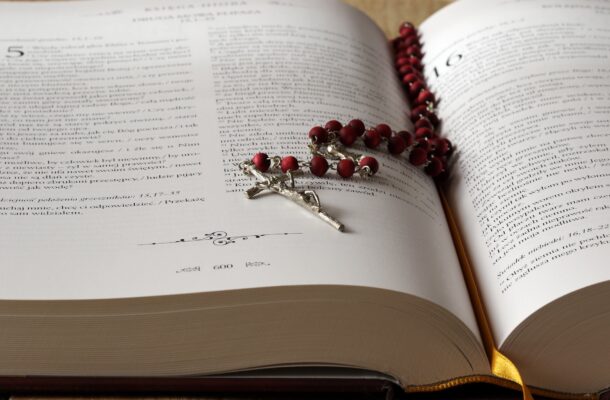The death of George Pell and Australian conservatism

The death of Cardinal George Pell elicited reactions from conservative Catholics bordering on hagiography: According to Tony Abbott, Pell was a ‘saint for our times’ and a ‘great son’ of Australia. Greg Craven made the extraordinary statement that Pell – rather than the children abused on his watch – was the ultimate victim of the church’s abuse scandal , while Jesuit priest Fr Frank Brennan expressed admiration for Pell. Even non-Catholic Peter Dutton described Pell as and his prosecution as a ‘modern day political persecution’.
Brennan and Craven were heavily invested in Pell’s case from the beginning. Both wrote opinion pieces decrying the trial court’s verdict. Apart from the fascinating insight that Brennan’s piece gave into clerical garb, neither offered much illumination.
This is unsurprising, for they were not privy to the jury’s deliberations and, as legal academics, both should have known that only jury members truly understand the basis upon which a verdict is reached, In contrast, one must respect the High Court’s eventual acquittal of Pell on criminal charges, while noting the continuing civil suit against his estate which may yet lead to adverse findings as to his conduct.
So far as the accusation of a political motive behind the prosecution is concerned, a person who believes they have been unjustly prosecuted has available to them the remedy of a civil suit for malicious prosecution. Success depends on proving that there was no reasonable cause for prosecution. It was open to Pell to sue on that basis, but given the prima facie evidence available to prosecutors, the fact that he was convicted at trial and that that conviction was upheld by the Court of Appeal, it is unsurprising that he did not.
On the face of it, the comments by Craven, Pell, Abbott and Dutton were extraordinary for the fact that they wrote out of history the fact that Pell was found by the Royal Commission into child sexual abuse to have actively shielded clergy from investigation and to have allowed known abusers to continue in their clerical role. How such a person could be considered to be a great son of Australia is difficult to fathom.
Conservatives against Constitutional Reform
But seen in the context of Pell’s support of conservative political positions over the past 20 years, in particular his attitude to human rights in general and constitutional reform in particular, adulation by conservatives, even in the face of the Royal Commission’s findings, becomes explicable.
Like Pell, who opposed a constitutional bill of rights with the cryptic comment that it could lead to a ‘culture war’, Brennan, Craven and Abbott have all adopted a similar position, ostensibly on the ground that it would invest the courts with a power to invalidate legislation. This is despite the fact that Australia has agreed to uphold the rights contained in the International Covenant on Civil and Political Rights and the International Covenant on Economic, Social and Cultural Rights.
The judicial power argument is specious. Since its inception in 1901, the constitution has vested the courts with the jurisdiction to invalidate legislation which unreasonably infringes such rights as the constitution does protect. Protecting additional rights would broaden the scope of protection offered by the constitution, but it would not invest the judiciary with new powers.
Another conservative argument is that the courts are incapable of balancing constitutional rights against other interests. This too is incorrect. The High Court first enunciated a balancing test based on reasonableness in 1943 and, since then has refined that in the proportionality test, similar to the tests used by many other countries with bills of rights.
Then there is the fact that none of these commentators has taken the logical step of arguing for the removal of such rights as the constitution does protect – including freedom of religion. Surely if some rights are worth protecting, then all are? We are left in the bizarre situation that the constitution protects freedom of religion but not, for example, the right to racial equality.
Catholic Conservatism
If constitutional theory provides no adequate basis for rejecting the idea that out constitution should protect rights, why the opposition from conservatives, and what is the link to Catholicism?
The answer to this lies in the core tenet of conservatism that society runs best if subject to the authority of established institutions – state, church and family – and that threats to those institutions must be resisted. Conservatives reject progressivism, liberalism and individualism which, in combination, envisage a society based on the realisation of individual autonomy (consistent with the autonomy of others) and require constitutional protection for the range of rights implied by that autonomy.
It is the prospect of individuals being able to challenge laws underpinning the social order that conservatives find threatening and which lies at the core of their opposition to constitutional protection of rights. This extends even to a desire to control life’s most intimate choices over marriage and reproduction.
The irony of this is that it puts conservative Catholics at odds with post World War II developments within their own church. The concept of human dignity, which underpins international human rights documents, was also the foundation of the ideas of Catholic philosopher Jacques Maritain, who participated in drafting the Universal Declaration of Human Rights.
The reason why we need to take note of all this is that the conservative influence over Australian society, particularly when coupled with the power of religion, has a deleterious effect on constitutional reform. This is especially the case given the appallingly low level of public understanding of the constitution, which gives ample opportunity of constitutional conservatives to exploit the fact that people are reluctant to change that which they do not understand.
As an example of the harmful influence of constitutional conservatives, one can point to the fact that although 90% of respondents to a survey by the Expert Panel on Constitutional Recognition of Indigenous Australians supported a constitutional right not to be discriminated against on grounds of race, national origin or ethnicity, attendees at the regional dialogues held by the Referendum Council dropped that claim for the specific reason that it would elicit opposition from constitutional conservatives. That the views of conservatives should have such an intimidatory effect is alarming.
It is clearly important to be aware of the nexus between political and religious conservatism because of the obvious impact it has on Australian law and politics. That conservative commentators could not bring themselves to acknowledge the harm that Pell’s tenure did to scores of children illustrates the depth and significance of that influence.
Dr Bede Harris began his academic career at the University of Natal, Pietermaritzburg. He is now a Senior Lecturer and Law Discipline Head at the School of Business in the Faculty of Business, Justice and Behavioural Sciences at Charles Sturt University where his research focuses on Constitutional Law and Indigenous legal issues.














